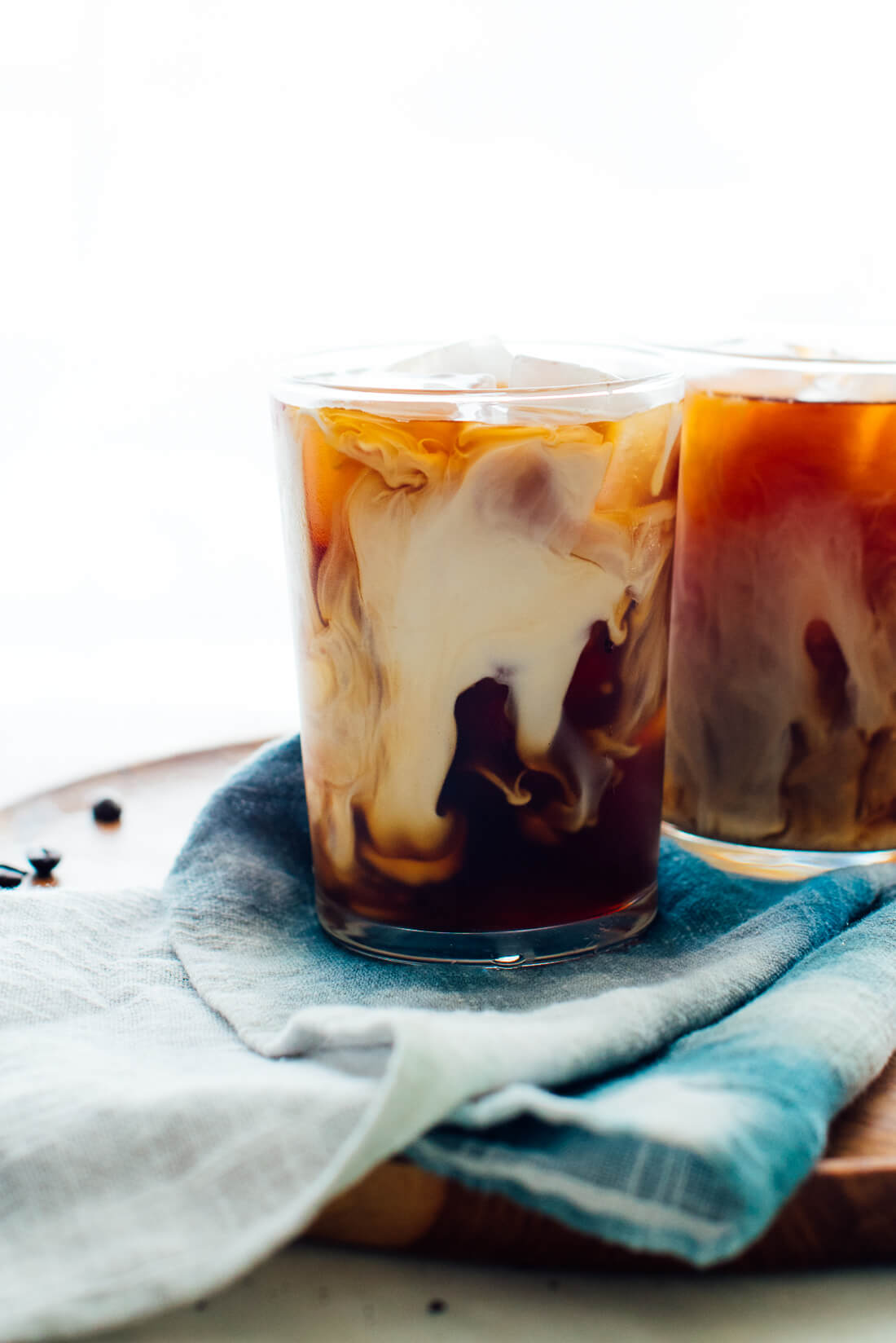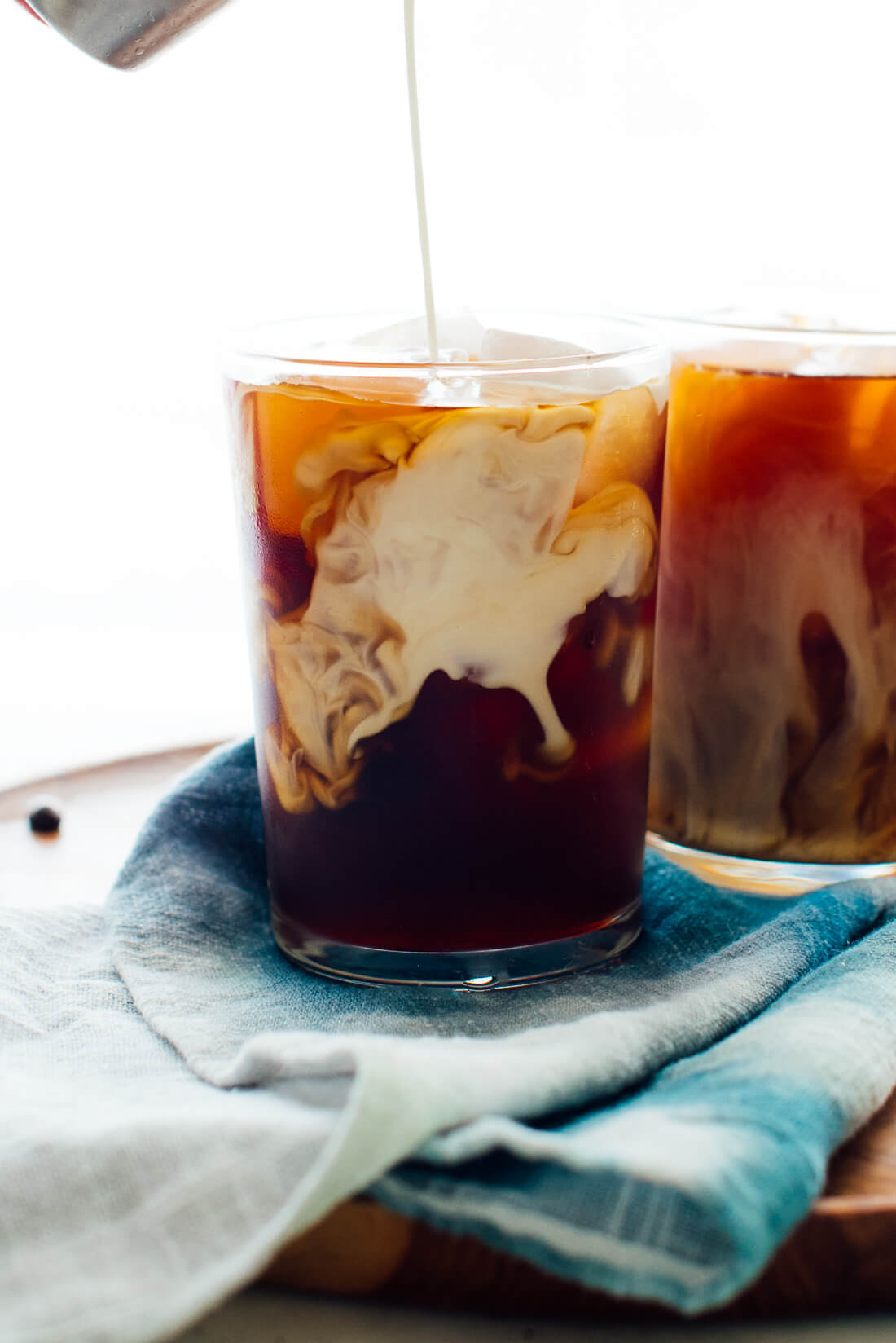
I know, fall is coming and everyone’s excited about pumpkin spice lattes. But, it’s still blazing hot outside and I’ve been working on my cold brew coffee game all summer. I’ve become a self-proclaimed cold brew aficionado, so hear me out!
Homemade cold brew coffee is:
- Smooth, slightly sweet and super refreshing
- Easy to make
- More affordable than buying at a coffee shop
- Ready-made for busy mornings
- Easily heated up if you’re in the mood for hot coffee
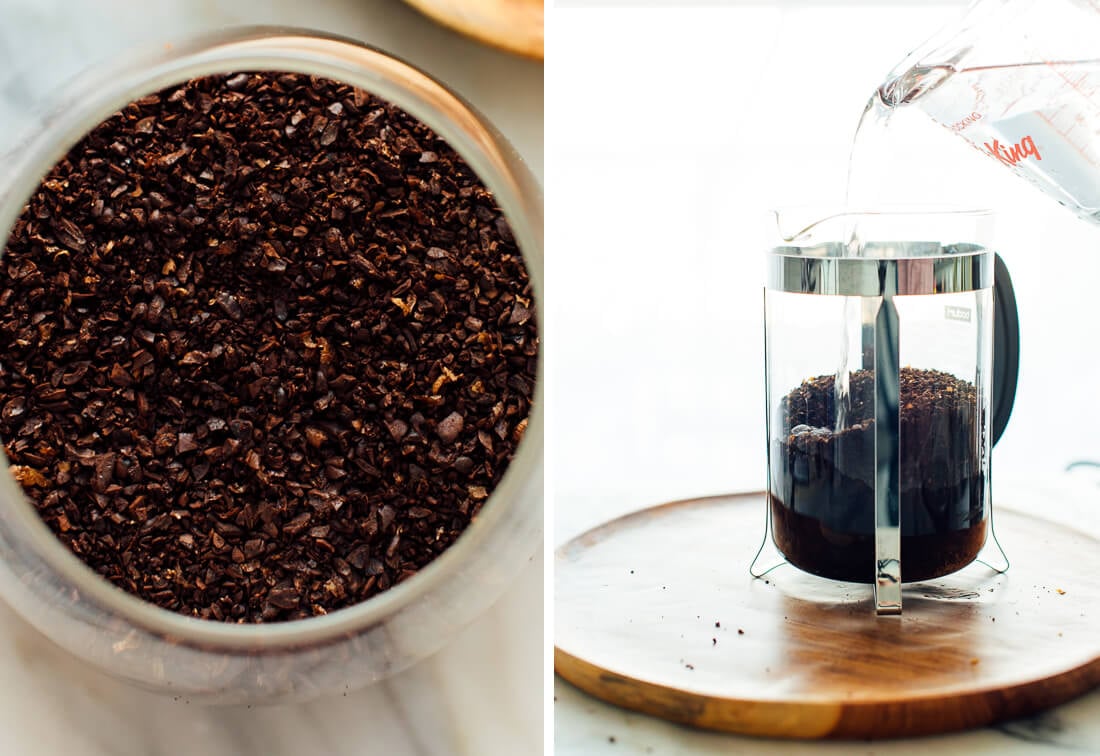
You can make cold brew on the weekend, then pour your coffee from the fridge every morning. No boiling water. No fussing with a coffee maker.
As someone who is 100% not a morning person, cold brew coffee is a total game changer.
Let’s make some cold brew!
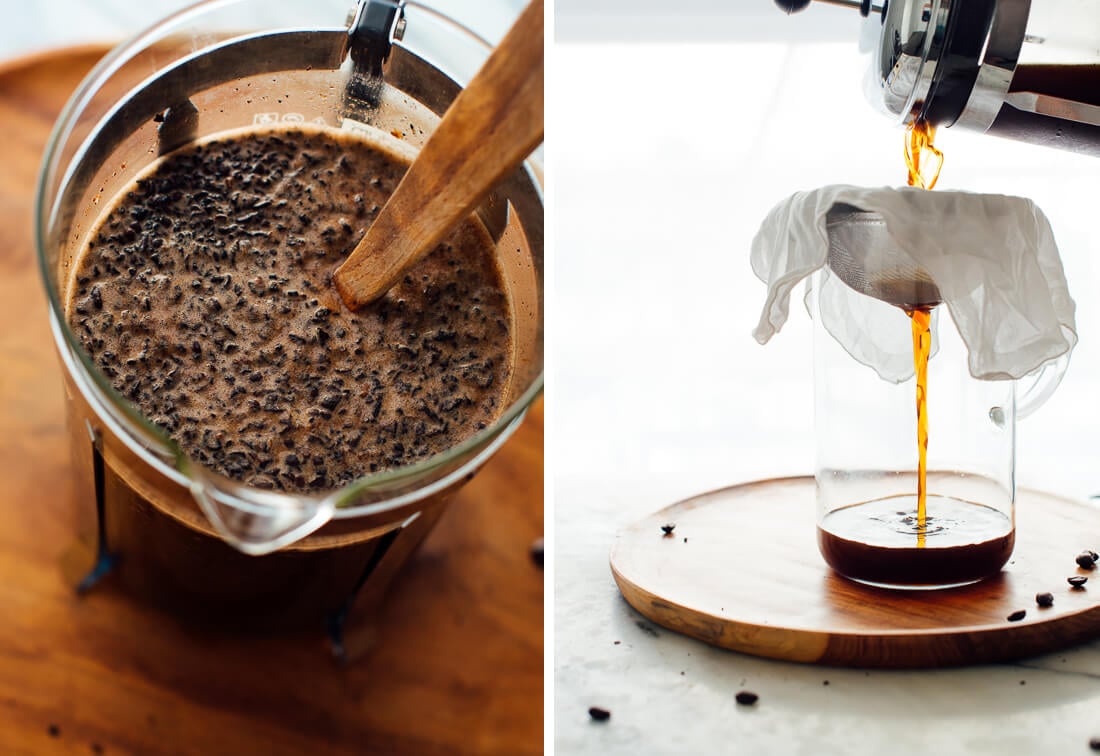
Fun Facts about Cold Brew Coffee
Cold brew can be strong.
This depends on a lot of factors, including the beans used, steeping time, and dilution. The dilution is the factor that is the easiest to control. Don’t drink cold brew concentrate straight—it’s highly caffeinated!
Cold brew is less acidic.
If regular drip coffee or espresso upsets your stomach, cold brew might not. The only way to know is to try it, and you’ll have more control over the end result if you make it yourself.
You can heat up cold brew and drink it hot.
Indeed, it’s true, and it’s very good. The flavor stays about the same.
Cold brew takes longer to make than drip coffee.
Since the water is cold, it needs to steep for about 12 to 18 hours to soak up the coffee’s color, flavor and caffeine. The cold extraction process brings out fewer of coffee’s bitter compounds, which produces a sweeter and smoother result.
Coarsely-ground coffee makes the best cold brew.
No coffee grinder at home? No problem. Just grind your coffee at the grocery store using their big coffee grinder machine, with the dial set on the coarse/French press option. I’ve provided approximate amounts of ground coffee to use if you don’t have a scale for a more accurate weight measurement (don’t worry about it).
Use any coffee variety you enjoy to make cold brew.
Any variety will work, and you’ll find that it tases less bitter when its steeped in cold water instead of hot. It would be fun to compare a glass of cold brew coffee with hot coffee of the same variety.
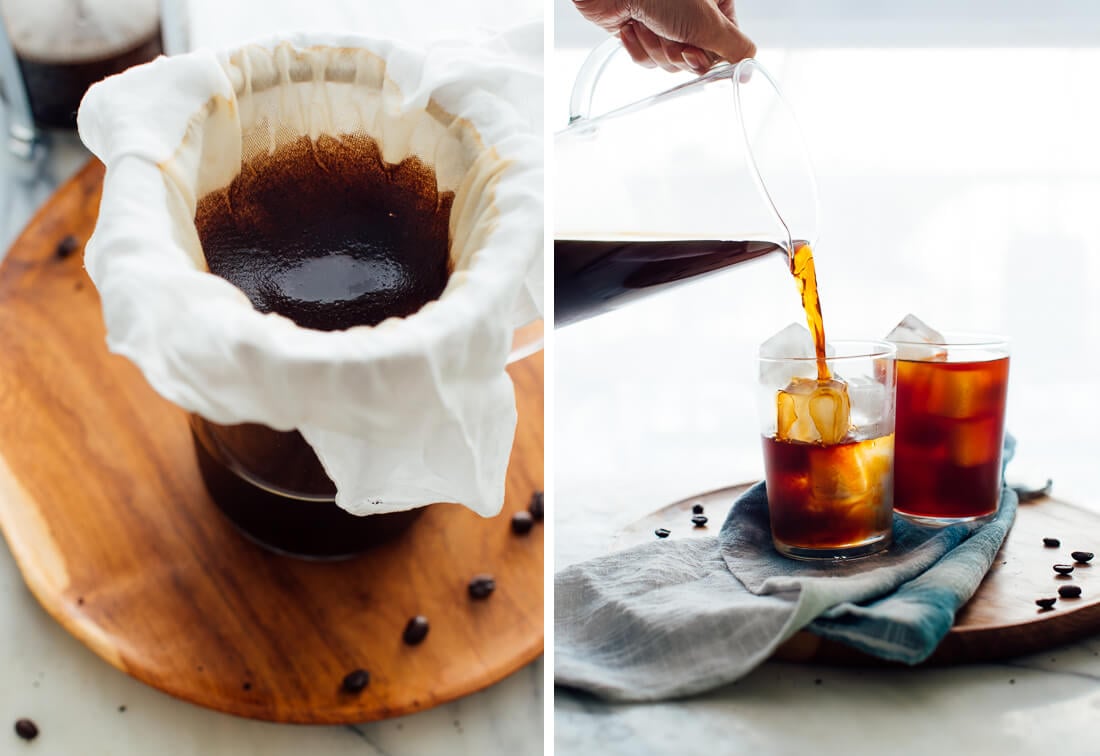
Basic Cold Brew Coffee Ratio
Here’s the deal: This ratio is flexible. A kitchen scale will come in handy if you have one, but it’s not necessary. You’re making cold brew concentrate, and you can dilute the concentrate to taste once it’s finished.
- Per 1 cup of water, you’ll need 1 ounce (by weight) coarsely ground coffee. That’s about 1/4 cup whole coffee beans, which yields roughly 1/2 cup ground coffee. If you’re accustomed to the metric system, 1 ounce is equal to 28 grams.
- You’re going to end up with a little less concentrate than the amount of water you used, since some of it will be absorbed by the coffee grounds. However, you’re going to dilute it with an equal amount of water, so you will be doubling your final yield. Clear as mud? I mean, coffee? Good.
Examples
- Let’s make cold brew coffee in a common 1-quart wide-mouth mason jar (affiliate link). In the jar, you’ll combine 3 ounces coarsely-ground coffee (that’s about 3/4 cup whole coffee beans turned into 1 1/2 cups coarsely-ground coffee) with 3 cups of water.
- After steeping and straining the mixture, you’ll have about 2 1/2 cups of cold brew concentrate, which is enough for 5 cups of cold brew. You’ve just made enough coffee to last you from Monday through Friday!
- If you have a 2-quart jar, simply double the amounts offered above.
- If you have an extra-large French press like I do, you can use 5 ounces of coffee (about 1 1/4 cups whole coffee beans turned into about 2 1/2 cups coarsely-ground coffee) and 5 cups water. You’ll end up with about 4 1/4 cups concentrate, or enough for 8 1/2 cups of cold brew.
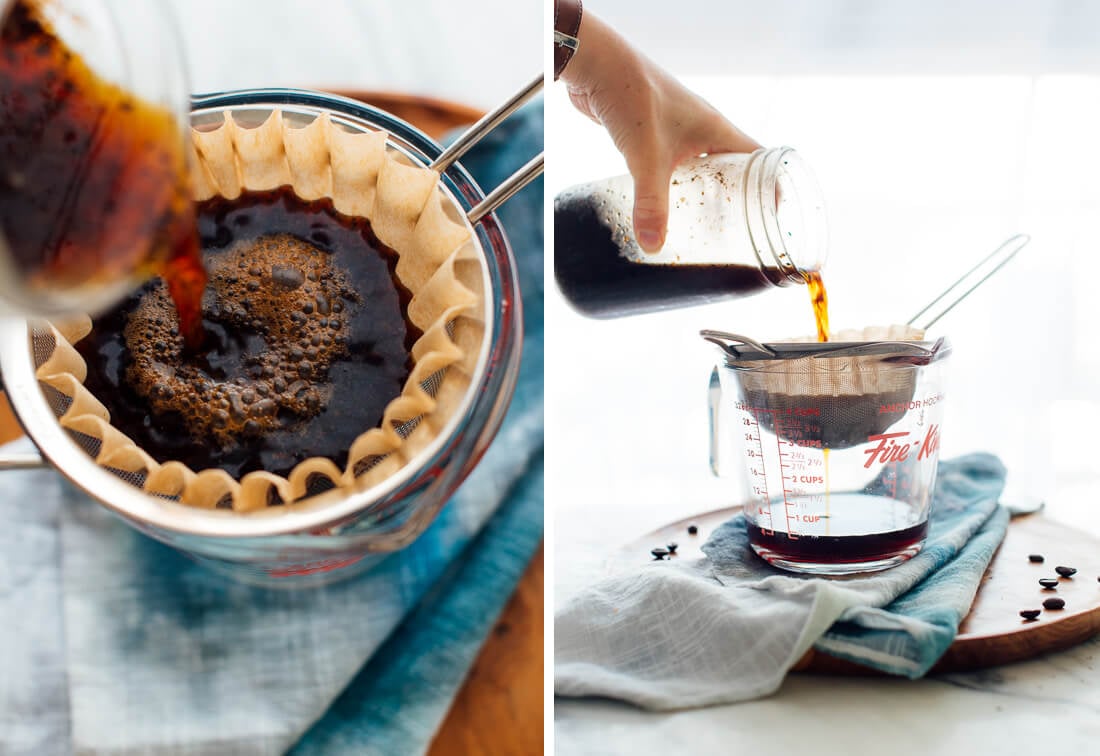
Recommended Steeping Time
The steeping time is flexible as well. I’ve read suggestions for “overnight or 12 hours,” and “at least 18 or up to 24 hours,” so do what works with your schedule. Starbucks steeps their cold brew for 20 hours.
If you accidentally steep yours longer (even 24+ hours), it’s ok. Your concentrate may taste a little more bitter than it would have, but it’s probably fine. It may also be extra-strong, so you might want to dilute with some extra water.
How to Strain Your Cold Brew
Once you’re done steeping the coffee, you’ll need to strain the coffee grounds out of the water. A fine-mesh sieve or French press filter isn’t sufficient (you’ll end up with murky, sludgy concentrate). Most methods will suggest using cheese cloth, but I hate cheese cloth! It’s difficult to work with and seems so wasteful.
I played around with other options and found two that work great. See my photos for examples of each. Choose one:
- Thin paper coffee filters: Use the “basket” paper filters that splay out in a round seashell shape like you see here. Make sure your filter is made of very thin paper, not a thicker material that will take forever to filter through. These are the filters I used.
- A vintage handkerchief: Yes, really—any small, thin, clean, lint-free, cotton cloth like a cocktail napkin will do. It should be large enough to cover your sieve when draped across it. I found my handkerchief at the bottom of my photo props, and I love that it’s easy to wash and reusable (although you could end up with a light coffee stain, so don’t use your favorite white one).
To strain, simply place the coffee filter into a small fine-mesh sieve, or drape your cloth over the sieve. Place it over a pitcher or liquid measuring cup, and pour the concentrate through it. That’s it!
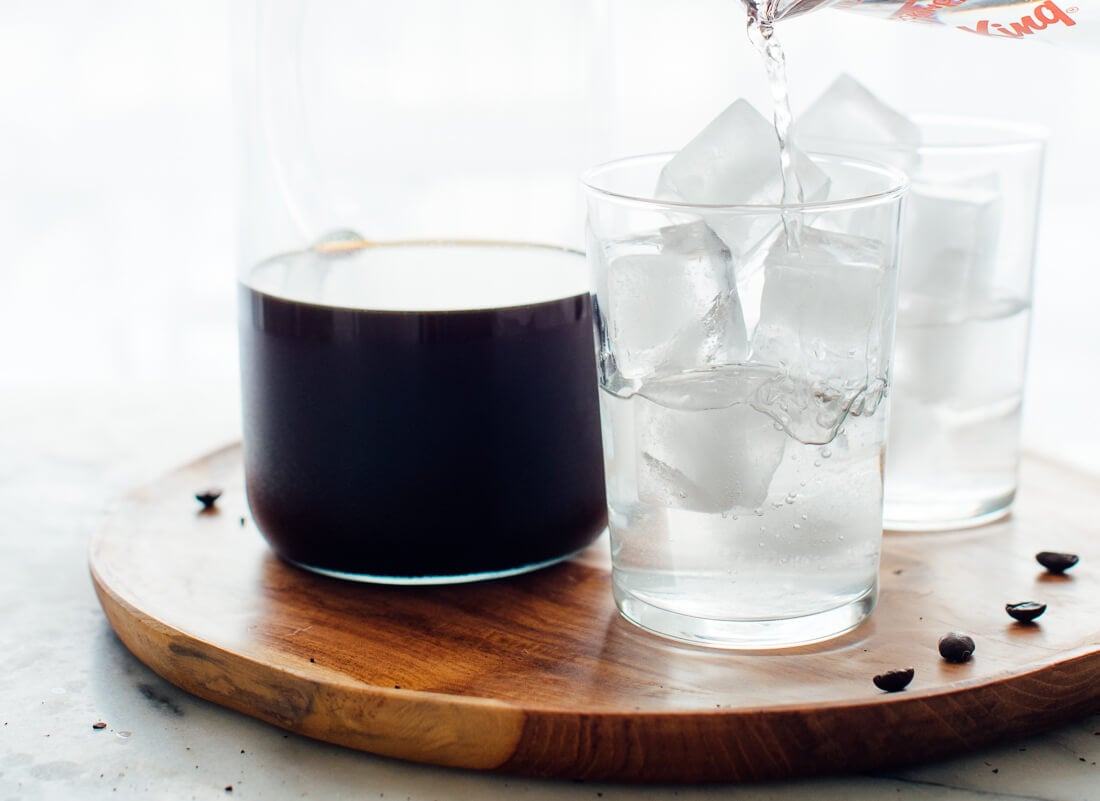
Have I convinced you to try making cold brew coffee at home? It’s so much cheaper than buying it from the coffee shop! Please let me know how it turns out for you in the comments.
Want to change it up? Try making cold brew iced tea. Like cold brew coffee, it’s more smooth and less bitter.
Looking for more recipes to ease your morning routine? Here are 23 make-ahead breakfasts.
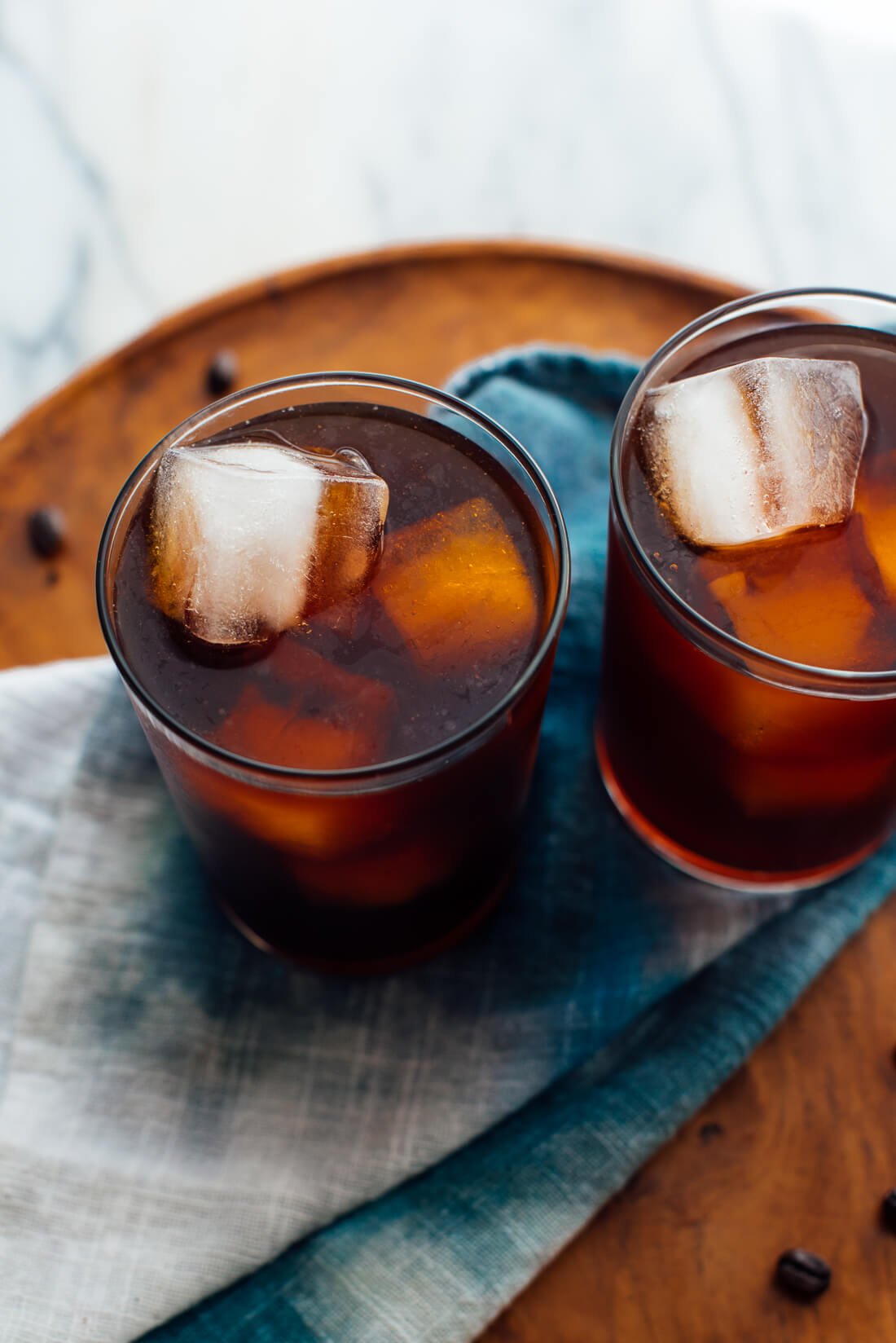
Watch How to Make Cold Brew Coffee
